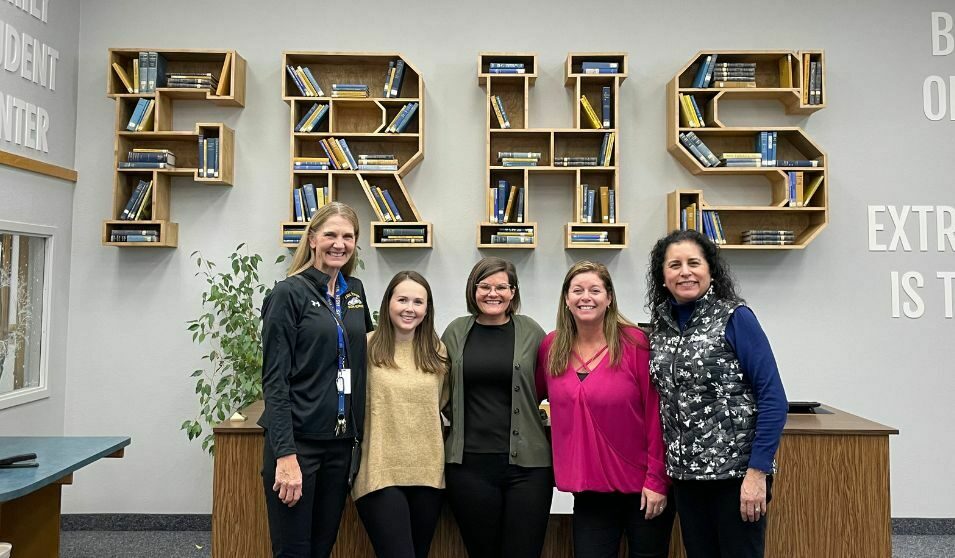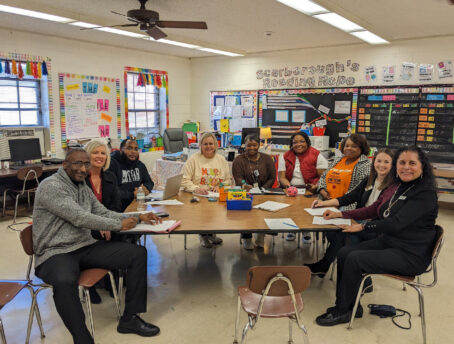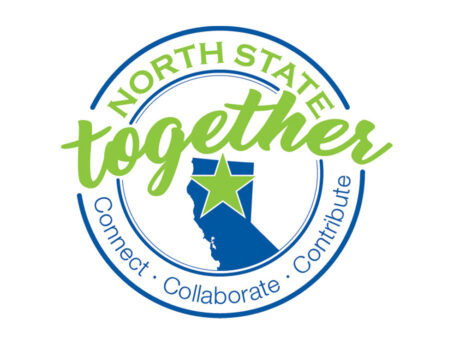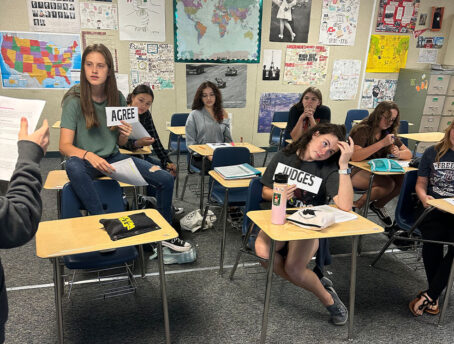As part of the national GRAD Partnership for Student Success, Rural Schools Collaborative is pleased to highlight 20 schools who are implementing student success systems as part of a rural and small school cohort project. This feature comes from McArthur, CA, and is supported by RSC’s Northern California Regional Hub partners at North State Together. Read more about the project here.
The Rural Schools Collaborative team had the opportunity to visit Fall River Junior Senior High School, one of the 20 small schools participating in the pilot rural cohort of the GRAD Partnership for Advancing Student Success Systems. Tucked away in far Northern California, many students take bus rides of an hour or more each way to school. After driving this beautiful route ourselves, we were welcomed by Principal Kelly Freeland-Sloat and Dean of Students, Liz Guerrero.
Transition years in school (elementary to middle school, or middle to high school) are often key times to support students for staying on track for graduation, but many rural and small schools have a wide range of grades attending. Fall River is one such school, serving 7th-12th graders under one roof. But no matter the student age, all learners can benefit from the framework of a Student Success System.
Student Success Systems are the key component of the national work of the GRAD Partnership for Student Success, of which Rural Schools Collaborative is a part of. These frameworks include research-based approaches to help students achieve postsecondary success. The key elements include:
Positive Student-Centered Mindsets
Real-time Actionable Data
Responses and Interventions
Caring Supportive Relationships
To kick off their first year of launching a student success system, Fall River staff invited a group of 9th graders to an informal lunch in the library and took some time to listen to how they were feeling about school – what they liked, what they didn’t like, and what they would change.
Informal conversations like this are often great sources of street data. While many schools think they aren’t collecting data or don’t know where to start, having conversations with their students is a data point itself. Plus, informal conversations between students and the school staff build student-to-caring-adult relationships and a sense of belonging and connectedness – fundamental, research-based factors of student success.
RSC’s team was able to sit in on this luncheon to learn more from the 9th graders and about the Fall River school.
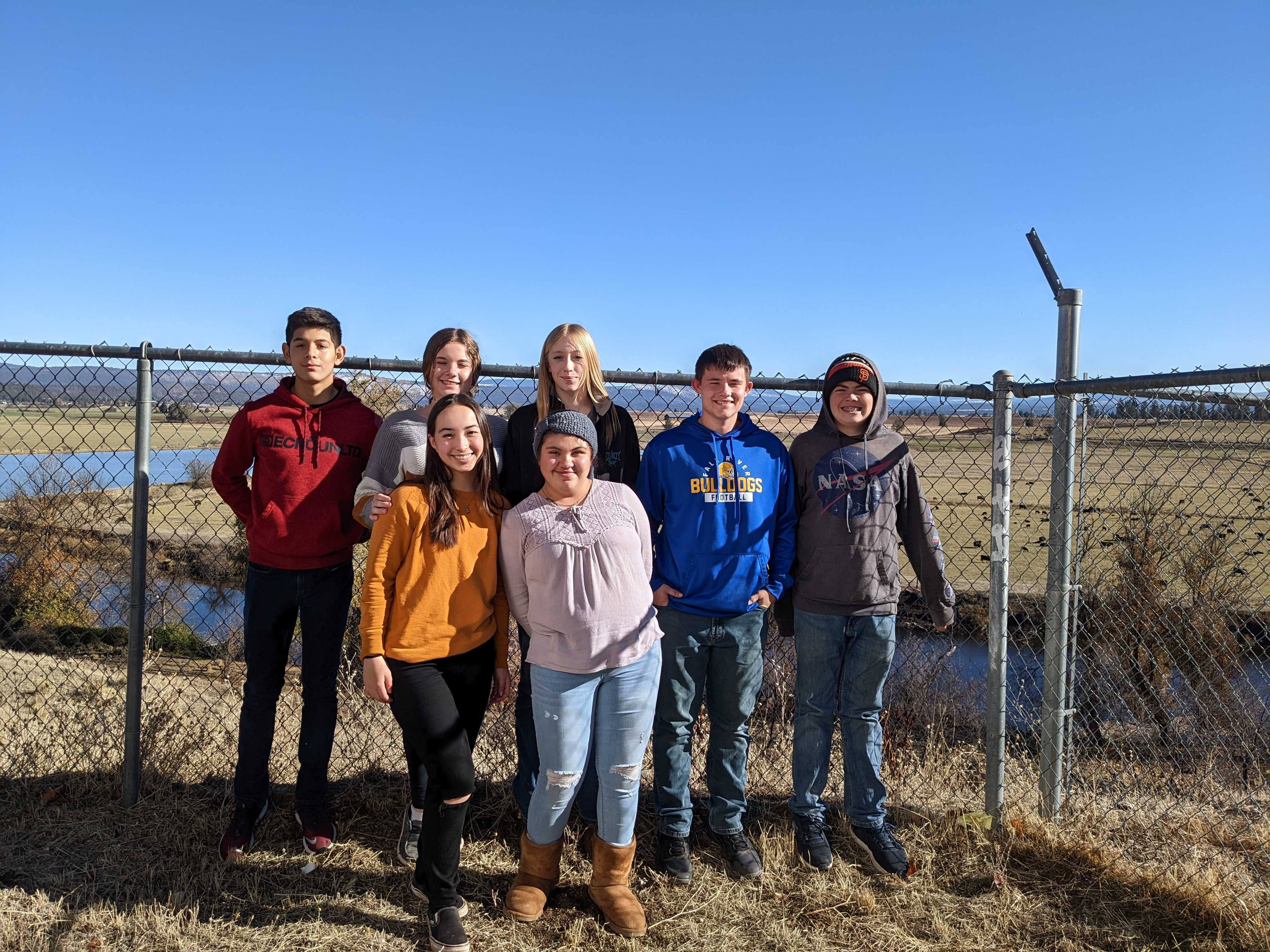
Rural Innovation
A common misconception is that small schools are not innovative, but in fact, having fewer resources and stronger relationships drives incredible collaboration and problem solving. Fall River is an excellent example of an innovative, small school.
For instance, Future Farmers of America (FFA) and agriculture are a huge part of the regional culture and economy. The majority of the students we talked loved being in FFA, and they proudly showed their pigs and heifers onsite during our school tour.
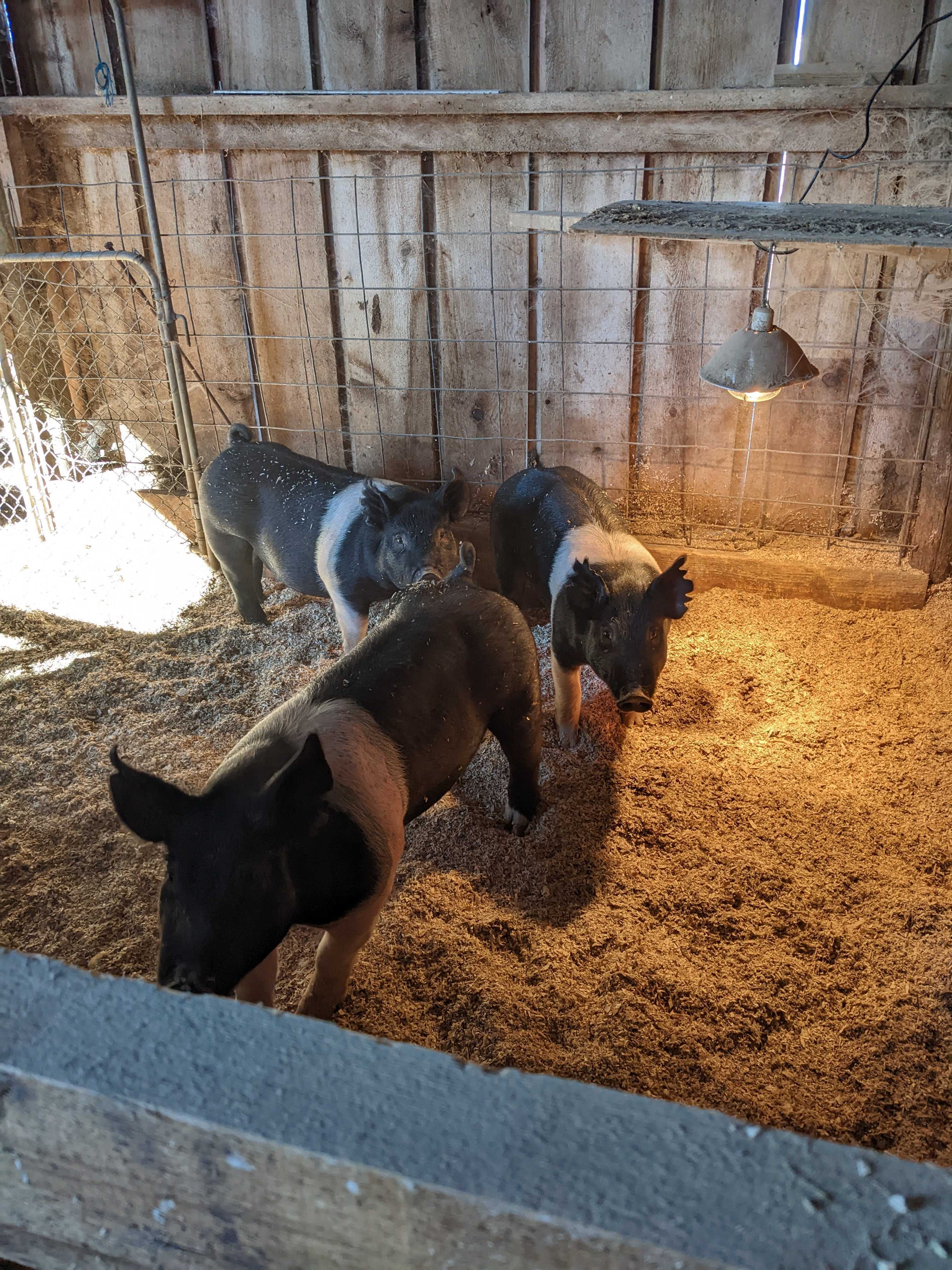
One of the 9th graders explained, “We have ag classes here like Ag Biology, Ag Wood Tech, Ag Science, stuff like that. A lot of ag classes. And when you have one of those classes, you're enrolled in the FFA automatically right then and there.”
These types of class offerings are incredibly responsive to the content that excites their students (and sets them up for future careers). However, some classes were born out of an innovative idea to address a teacher shortage, as well as the need to continue offering core curriculum:
“Finding a regular-track biology teacher in this [rural] climate is like finding a unicorn,” the principal said. “But, we were able to find a really quality ag and science teacher who has a lot of training in biology. So, she is working on her credentials for biology and science, and we can offer classes like Ag Bio.”
Liz Guerrero adds, “And so they have a really great depth of curriculum within those sciences that meet the federal and state standards, so the kids are still getting everything that they need.”
So what happens in Ag Science? A student explains a current project:
“A classroom project we’re doing now is taking four heifers and doing three different pregnancy tests on them - Three different methods.”
Planting the Seeds: Post-secondary Success
A major goal of the GRAD Partnership is making sure that all students are ready to graduate and find post-secondary success. Rural students often have better-than-average high school graduation rates, but college completion is historically low, so it was wonderful to hear all the different types of careers and education pathways the Fall River 9th graders were exploring:
“Going to college definitely, probably for four to six years, then getting a bachelor's degree, probably in criminal justice, and becoming an FBI Profiler.”
“I'm not really sure what kind of job I want to do, but I do. I think my strong point is writing. So, maybe journalism.”
“Well, I want to go to college, but I need to try to find a scholarship because I don't really want to pay for the semesters and all this stuff, so I'm trying to get good grades.”
“Well, right now I don't really know, but I've been thinking about becoming maybe a dentist.”
“Try and pursue singing, and if that doesn’t work out, then my fallback would probably be veterinarian.”
“So, I wanna go to the National University of Aeronautics and Aerospace Tech in North Carolina. And I want to work and build NASA rovers and all that stuff.”
Encouraged by involvement in ag-based learning, some of these students already have their own after-school jobs, breeding, raising, showing, and selling steers, which impresses Fall River faculty and staff:
“Our kids participate in everything they can and so they're busy. Their time management is really good because they know, ‘I have this much time for practice. I have this much time for my clubs, this much time for homework.’ And so when they do go to the next level, they're usually very successful.”
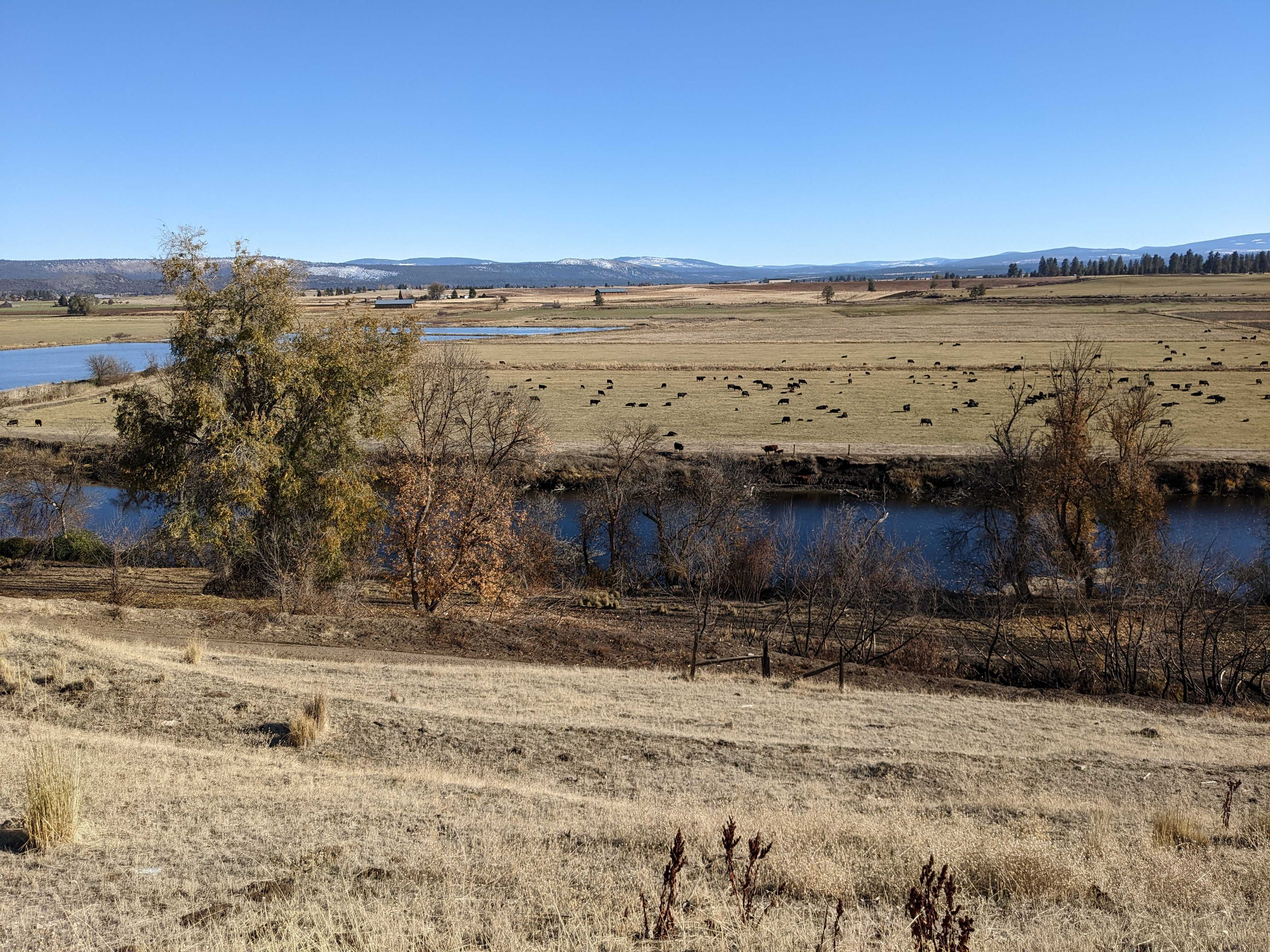
Student-Centered Interventions at Fall River:
When the 9th graders talk about why they come to school, and their favorite parts of the day, they overwhelmingly mention their friends, clubs, and extracurriculars – Parliamentary Procedure (or “Parli Pro,” as the kids say), Arts and Literature Club, Robotics Club, Volleyball, Football, and more.
Especially after struggling with distance-learning, many of the students were longing for those opportunities to engage in these activities with peers…so, the teachers are responding by making space for that:
“I noticed the teachers are backing off a little bit on the homework, which I think has been nice for the kids because they're involved in so many things, which is a learning experience in itself.”
The adjustment also makes great sense for Fall River’s learners considering that long bus rides may cut into time for coursework. It’s truly a response based on students’ needs.
As well, feeling heard and supported by your teachers goes a long way in building trust, so students can continue to ask for what they need.
“Yeah, it got a lot better once we were back in the classroom and it was a lot easier to be able to go and say, ‘Hey, I don't understand this because of this, can you help me with it?’” said one 9th grader on his COVID learning experience.
One of the students stayed after the luncheon, briefly, to let the principal know her math class was moving too slow for her, and ask if she could potentially switch to the next level up.
“That's definitely something we can do. I'll of course talk to your math teacher, but we've done that for a few other kids, so that's something we can do for sure. “
These are the types of student-adult conversations that help kids advocate for themselves and get what they need to be engaged in school.
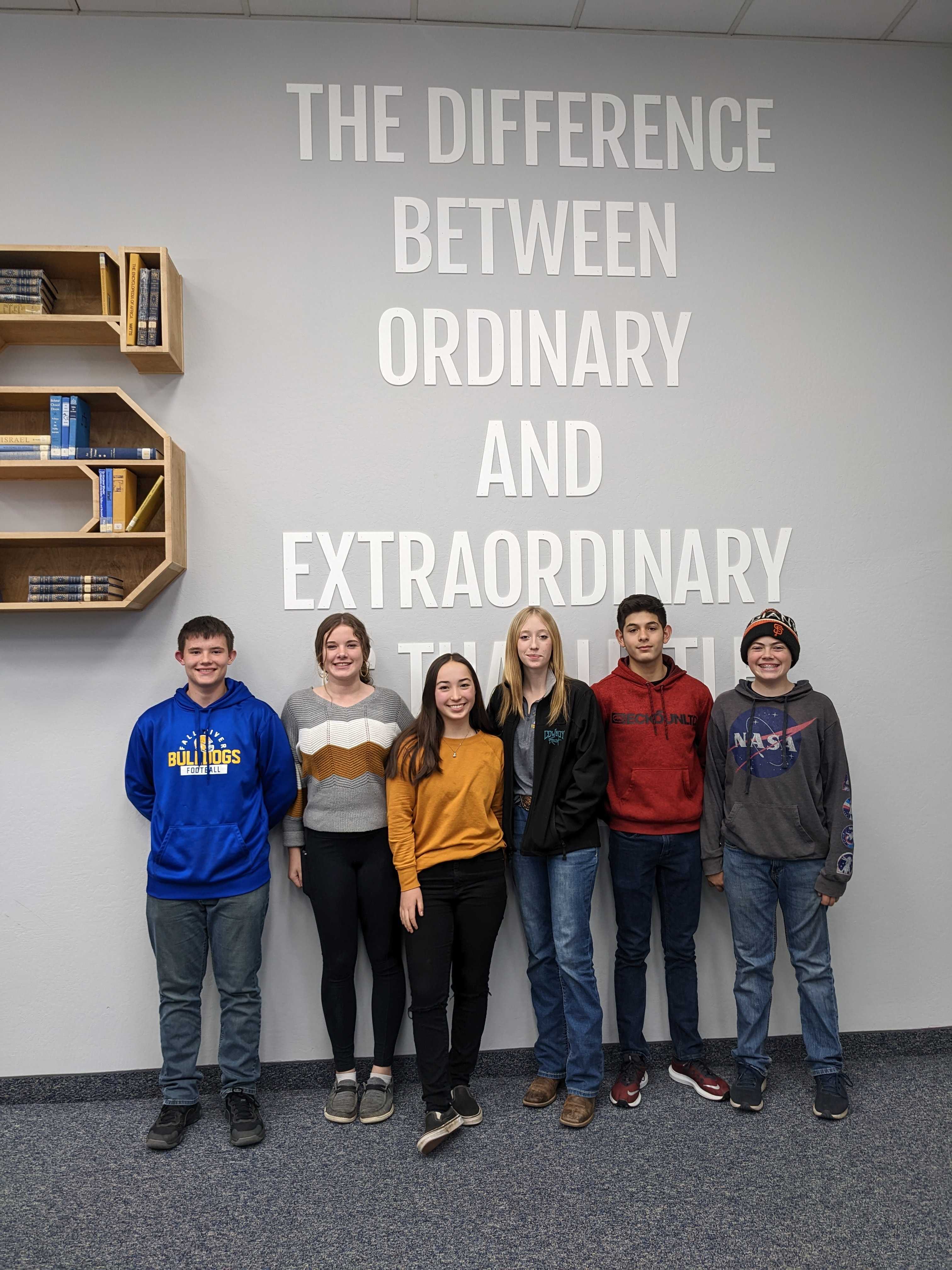
Next Steps
With the support of North State Together as an intermediary, and the larger rural school cohort of the GRAD Partnership, Fall River will continue building this culture of student connectedness and belonging. Their hope is to implement assessments that measure anxiety and social stressors, as well as pilot new opportunities to deepen school relationships. Early ideas are student mentoring, mini-workshops, lunch bunch, and a calendar of events to keep students engaged.
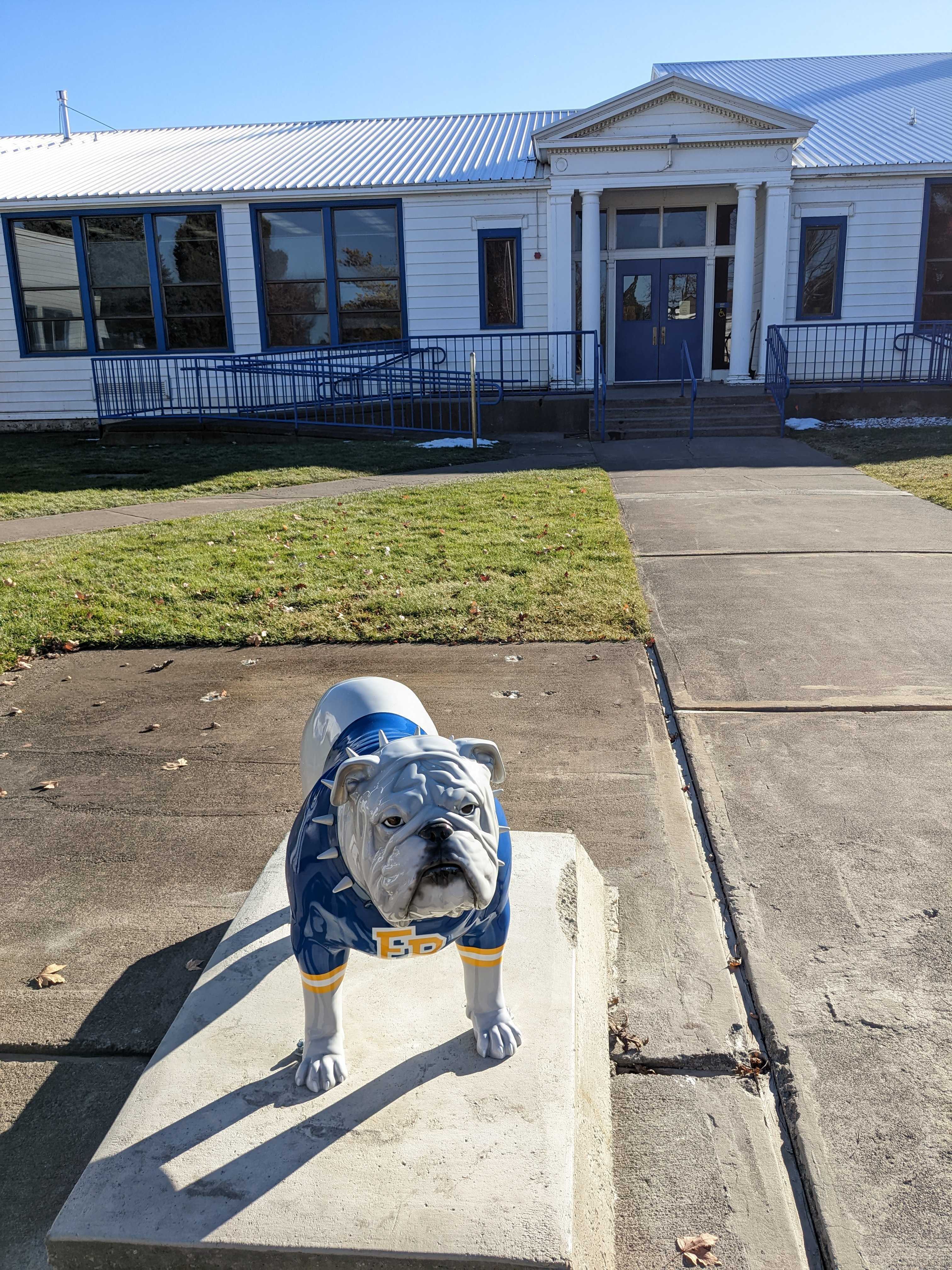
To start, a recent family dinner at a high school basketball game, supported by the GRAD Partnership funds, was wildly successful - and we can’t wait to see what comes next!
Rural Schools Collaborative, North State Together, and the larger GRAD Partnership for Advancing Student Success Systems are so excited to support the innovative and student-centered work happening in Fall River. Learn more about the GRAD Partnership and RSC’s 20 Rural Cohort Pilot Schools in Northern California and the Black Belt.

